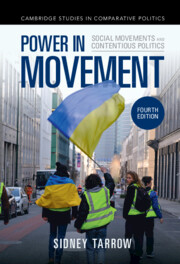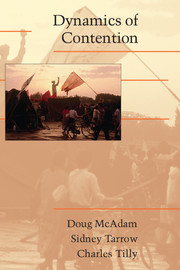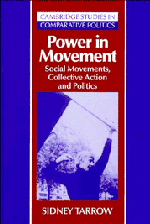Power in Movement
Unlike political or economic institutions, social movements have an elusive power, but one that is no less real. From the French and American revolutions through the democratic and workers' movements of the nineteenth century to the totalitarian movements of today, movements exercise a fleeting but powerful influence on politics and society. This study surveys the history of the social movement, puts forward a theory of collective action to explain its surges and declines, and offers an interpretation of the power of movement that emphasises its effects on personal lives, policy reforms and political culture. While covering cultural, organisational and personal sources of movements' power, the book emphasises the rise and fall of social movements as part of political struggle and as the outcome of changes in political opportunity structure.
- Comparative study of social movements, focusing on Europe and the United States
- Author of several respected books
- Although it is not an introductory text, writing is clear, precise, and engaging
Reviews & endorsements
"This is unquestionably a seminal work, one that lies fundamentally in the literature on social movements....an exceptionally rich synthesis and weaving together of research and literature on social movements..." Studies in Comparative International Development
"The brilliance of this book is the author's ability to transcend conventional schools of social movement analysis....It is difficult to see movements in the same light after reading this book." American Political Science Review
Product details
May 2011Adobe eBook Reader
9780511252242
0 pages
0kg
6 b/w illus.
This ISBN is for an eBook version which is distributed on our behalf by a third party.
Table of Contents
- Introduction
- 1. Contentious politics and social movements: Part I. The Birth of the Modern Social Movement:
- 2. Modular collective action
- 3. Print and association
- 4. Statebuilding and social movements
- Part II. From Contention to Social Movements: 5. Political opportunities and constraints
- 6. The repertoire of contention
- 7. Framing contention
- 8. Mobilising structures and contentious politics
- Part III. The Dynamics of Movement:
- 9. Cycles of contention
- 10. Struggling to reform
- 11. Transnational contention/conclusion: the future of social movements.













